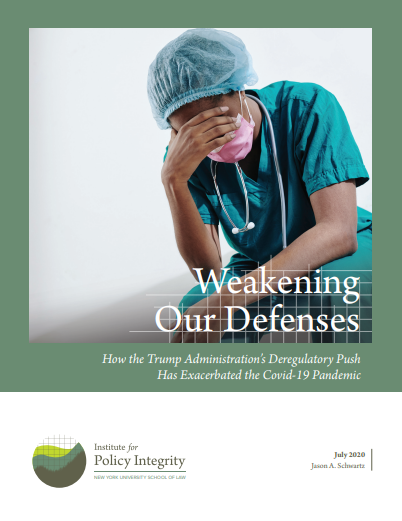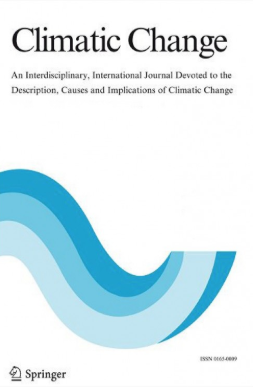-
Comments to Department of Labor on Rule Limiting ESG Investments
The Department of Labor proposed a rule that would impose limitations on investors’ ability to choose investments in Environmental Social and Governance (ESG) strategies. We worked with the Environmental Defense Fund to submit comments focusing on the proposal’s flaws.
-
New Mexico PRC Adopts Plan to Replace San Juan Coal Plant with Renewables Portfolio
In 2022, New Mexico’s largest utility company will retire the San Juan Generating Station, a coal-burning power plant that has operated since 1973. In light of the decision, the state’s Public Regulatory Commission (PRC) has adopted a plan to replace the plant’s power output with 100 percent renewable energy and battery storage. The plan is a significant victory for the community groups and environmental advocates that have pushed to expedite the clean energy transition, and our efforts helped pave the way for this decision.
-
Comments to Virginia on Developing an Energy Storage Rule
The Virginia State Corporation Commission asked for input in advance of developing a rule for energy storage deployment. Our comments note that energy storage deployment can increase emissions from the electricity sector, even if those deployments also facilitate the integration of variable renewable resources. We urge the Commission, under the Virginia Clean Economy Act, to adopt a rule ensuring that energy storage resources are deployed and operated in ways that reduce net emissions.
-
Federal Court Rules Against Flawed, Domestic-Only Consideration of Climate Costs
The U.S. District Court for the Northern District of California vacated the Bureau of Land Management's repeal of an Obama-era rule that was designed to reduce wasteful venting of methane from natural gas operations on federal lands. The court ruled in part that it was arbitrary for the Trump Administration to have reduced the estimate of the social cost of methane from $1300 per ton down to just $176 per ton by excluding from consideration any climate effect occurring outside U.S. borders. Policy Integrity has worked for years to build the case against the so-called “domestic-only” estimate of climate costs.
-
Weakening Our Defenses
How the Trump Administration’s Deregulatory Push Has Exacerbated the Covid-19 Pandemic
The failure of the federal government to adequately safeguard the health, environment, and economy of the United States with efficient regulatory protections is not a new phenomenon. For over three years now, the Trump administration has systematically delayed, undermined, and erased key regulations that protect our health, our environment, our workplaces, our living conditions, and our economy. The steady erosion of regulatory safeguards has severely compromised our baseline defenses against Covid-19.
-
Comments to BLM on September 2020 Lease Sale in Utah
A proposed oil and gas lease sale in Utah would offer over 100,000 acres located in areas valuable for recreation, wildlife, environmental conservation, cultural use, and tourism. We submitted comments detailing how the Bureau of Land Management’s environmental assessment neglects its duties to manage public lands for multiple use and consider more limited leasing scenarios. BLM also ignores the option value of delaying the leasing decision and, therefore, is unlikely to obtain fair market value for the nominated land parcels.
-
Wisdom of the Experts
Using Survey Responses to Address Positive and Normative Uncertainties in Climate-Economic Models
The social cost of carbon (SCC) and the climate-economic models underlying this prominent US climate policy instrument are heavily affected by modeler opinion and therefore may not reflect the views of most climate economists. To test whether differences exist, we recalibrate key uncertain model parameters using formal expert elicitation: a multi-question online survey of individuals who have published scholarship on the economics of climate change. Read the article, published in Climatic Change.
-
Comments to DOE on Energy Conservation Standards for Water Heaters
The Department of Energy (DOE) asked for input on conducting its national impact analysis, including on market failures, its emissions analysis, and monetization of benefits of emissions reductions. We submitted comments suggesting that DOE continue to monetize the full climate benefits of emissions reductions using the best available estimates of the social cost of greenhouse gases.
-
Comments to DOE on Energy Conservation Standards for External Power Supplies
The Department of Energy (DOE) asked for input on conducting its national impact analysis, including on market failures, its emissions analysis, and monetization of benefits of emissions reductions. We submitted comments suggesting that DOE continue to monetize the full climate benefits of emissions reductions using the best available estimates of the social cost of greenhouse gases.
-
Amicus Brief on EPA’s Revocation of the California Auto Emissions Waiver
We filed a brief in the D.C. Circuit supporting a challenge to the Environmental Protection Agency’s (EPA) decision to revoke the waiver of preemption that allowed California (and more than a dozen states following California's standards) to set critical auto emission standards to further restrict greenhouse gases and other harmful air pollutants. EPA wrongfully concluded that it has virtually unconstrained authority to revoke a preemption waiver under Section 209(b) of the Clean Air Act. We explain how the agency overlooks key countervailing principles and misconstrues the purpose and mechanics of the waiver provision.






